Is there a more beautiful aria than ‘O mio babbino caro’ from Puccini’s Gianni Schicchi? There are more overwhelming moments in opera, to be sure, but few arias can rival it for the way its beauty kicks you in the back of the knees; its gentle rocking motion causes your shoulders to slump while the little floated top notes dilate the music’s gaze, drawing the listener irresistibly into its secret promise of untroubled bliss.
Nor does it help that the aria’s whole point is to be irresistible. ‘Daddy dearest, I love him so,’ sings Schicchi’s teenage daughter Lauretta. She might equally be thinking of a doggy in a window: it doesn’t matter because her music and its evocation of romantic plenitude immediately turns her unscrupulous father — and us — into putty in her hands. And while powerful enough by itself — particularly when blasted through Lucy Honeychurch’s open window in Merchant Ivory’s A Room with a View — in context the aria’s pastoral flow and tenderness tears through the frenetic, biting fabric of the rest of the opera’s music with a surprising force, a breeze of innocence stilling the relentless scheming and self-interest.
The moment is superbly achieved by the director Christopher Alden and conductor Jac van Steen in their new production of Schicchi for Opera North. The rear wall of Charles Edwards’s sparse set is pushed forward, literally forcing the focus on to the indistinct character of Lauretta and squeezing the fretting Donatis out into the wings. Evenly and unforcedly sung by Jennifer France, as the orchestra swells around her, Lauretta is played as a hair-chewing adolescent, ill at ease, awkward about everything except about manipulating her father.
The musical and stage direction of the surrounding opera is near flawless. Van Steen, making a welcome return to Opera North following 2013’s excellent Peter Grimes, keeps the orchestral textures vivid and the pace fluid, operating Puccini’s sly gear-changes — the musical equivalent of switching camera angles — with a master’s touch. Alden also steers a clever course between establishing individual characterisation and achieving a dance-like fluidity of stage movement and interaction. Christopher Purves’s portrayal of the devious lawyer Schicchi, burdened and redeemed by his secret sentimentality, is as accomplished a performance as one could wish for, never less than smoothly turned but able to turn from louche charm to viperous fury in a flash. He is ably supported by an excellent company of fluent, experienced actor-singers, including Jesús Álvarez’s nicely understated Rinuccio and Elizabeth Sikora’s prickly Zita. Tim Claydon, the movement director, has a double mime role as Dante and Buoso Donati. After an elaborate slapstick death in the (silent) prelude, he re-emerges, unobserved, every so often as Buoso’s appalled ghost. It’s less irritating than it sounds.
In being at once sensationally cynical and sincere in its beauty, ‘O mio babbino’ might stand as a metaphor for opera itself, and the way its manifold artifices are anchored by an unparalleled directness of appeal to our better selves. Certainly, the play of sincerity and cynicism is brought out marvellously by Alden and van Steen here, but in the opera’s partner piece in this double-bill presentation — Manuel de Falla’s rarely heard short tragic opera La vida breve — the genre’s essential irony emerges even more powerfully.
La vida breve is de Falla’s first opera, but its virtuosically eclectic ‘Spanishness’, vividly coloured scoring and tightly controlled pacing suggest an experienced hand. The opera tells of a doomed affair between the gypsy-girl Salud and her faithless lover Paco, a young bourgeois who forsakes her for a more suitable match. Salud takes her own life, as nasty, brutish and short as the title suggests, not merely out of despair, but from a steely determination to broadcast the injustice inherent in her fate.
Reviving his 2004 staging for Opera North, Alden transfers the action to a modern-day clothes factory. The women produce wedding dresses while the men stagnate in resentful idleness, coagulating into flash-mobs intent on realising the latent violence in the women’s gossip. The setting works seamlessly, blurring the gypsy element of the story to focus on the essentials: everyone remains trapped on stage throughout, save for the bourgeois characters and the drug-peddling flamenco singer (an excellent Quirijn de Lang), who sidles ghoulishly on to the stage, sowing light entertainment, reaping entrenched despair.
Alden introduces two inspired touches. The first is to bring the off-stage voice, whose folkish Andalusian lament frames the action, on to the stage as a transvestite co-worker. Superbly sung by Daniel Norman as Salud’s sulky ally, the character is abhorred by the workforce because he voices their deepest fears about the impossible remoteness of spiritual fulfilment.
The second is to turn Salud’s suicide from passionate confrontation into slow ritual: taking one of the finished wedding dresses, she mounts the factory’s modelling platform for the famous danza, takes the scissors and cuts her flesh to pieces. Her workmates close in around her in a show of oppressive solidarity: they, no less than Salud herself, demand her death in penance for the transgression of letting a flicker of hope illuminate their world.
Thanks to the force of Anne Sophie Duprels’s striking vocal and physical characterisation, and to the excellence of the company’s chorus and orchestra, the scene is quite overwhelming, taking the opera and its bristling score well beyond the stock psychologies of operatic ‘verismo’ to penetrate deep into the concerns and fears which crowd and confound us today.
Got something to add? Join the discussion and comment below.
Get 10 issues for just $10
Subscribe to The Spectator Australia today for the next 10 magazine issues, plus full online access, for just $10.
You might disagree with half of it, but you’ll enjoy reading all of it. Try your first month for free, then just $2 a week for the remainder of your first year.

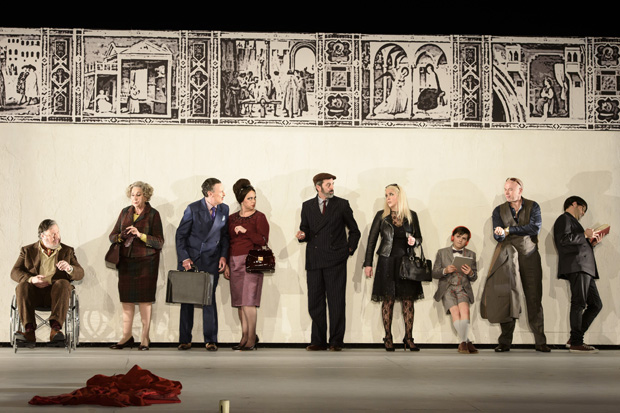
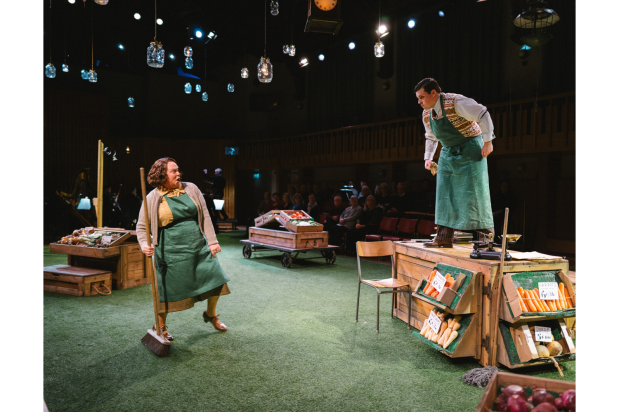
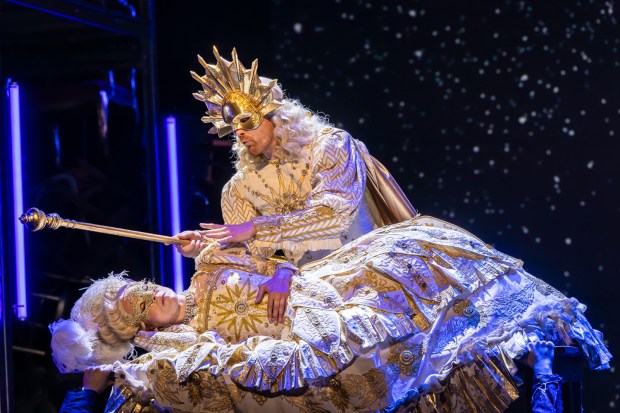
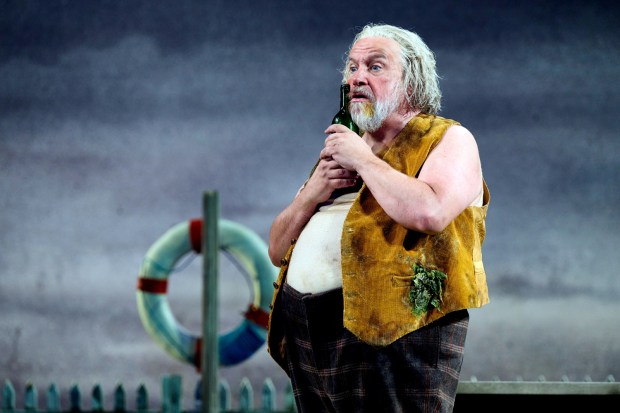
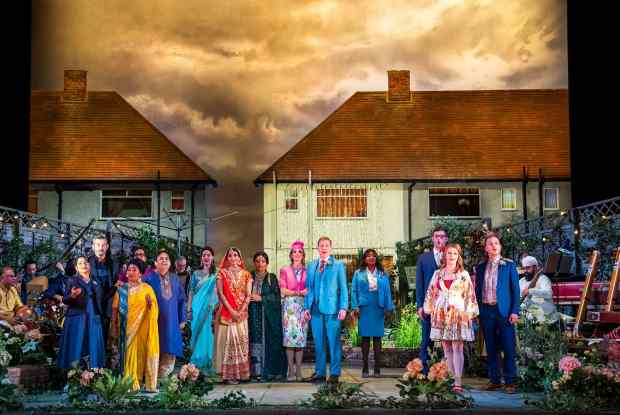
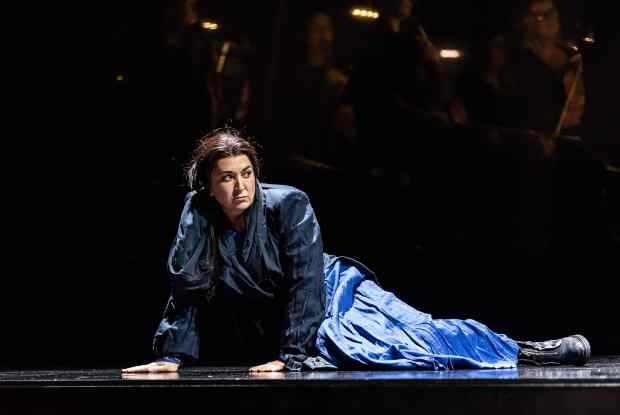
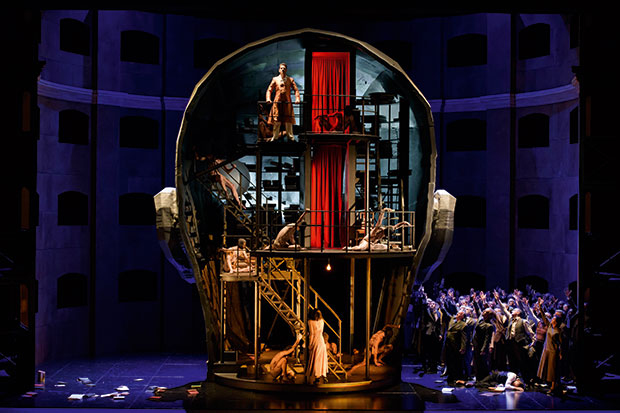






Comments
Don't miss out
Join the conversation with other Spectator Australia readers. Subscribe to leave a comment.
SUBSCRIBEAlready a subscriber? Log in